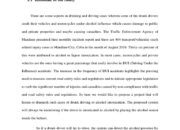In the realm of scientific discourse, the interplay between empirical zeal and the ideation of faith often navigates a complex theatrical stage. The concept of empirical zeal arises from the fervent commitment to evidence-based conclusions and the relentless pursuit of knowledge. This enthusiasm is juxtaposed against the notion of faith, typically characterized by beliefs that fall outside the purview of empirical validation. This essay explores how these themes converge within the domain of scientific blogging, illuminating the role of the scientific blogger as both a gatekeeper of knowledge and a passionate advocate for skepticism.
Empirical zeal can be likened to the ardor of a seasoned alchemist, fervently seeking to transmute base materials into gold—the transformation of raw, untested theories into substantive knowledge is a captivating endeavor. In scientific blogging, this metamorphosis occurs publicly, with bloggers akin to modern-day alchemists, ardently refining their arguments in the crucible of public scrutiny. Within this terrain, the bonds of faith are tested, as every claim is subjected to the rigors of empirical validation, establishing a dichotomy that compels both the writer and the reader to confront their preconceptions. The blogosphere becomes a dynamic laboratory where hypotheses are rendered and re-rendered, shaped by reader feedback and peer discourse.
The scientific blogger, then, occupies a unique interstice within the grand narratives of science communication. They are the interlocutors who strive to democratize knowledge by distilling complex scientific principles into accessible formats. Through rife metaphors and engaging prose, they render the esoteric into the intelligible, a noble and formidable task. This serves not merely to educate but also to entice an audience that may otherwise remain ambivalent to the intricacies of empirical inquiries. In this context, the blogger’s empirical zeal must remain vigilant against the allure of unsubstantiated beliefs—faith that may, at times, masquerade as scientific certainty.
Faith, in its most problematic form, can manifest as an antithesis to the tenets of empirical inquiry. It embodies an unwavering adherence to ideas not substantiated by rigorous experimentation or observation. For the scientific blogger, maintaining decorum amidst this dichotomy is essential; their craft requires a fine balance between fostering enthusiasm for new ideas and rigorously interrogating their validity. The emergence of confirmation bias—a cognitive proclivity to favor information that corroborates existing beliefs—poses a recurrent threat. A compelling narrative may ensnare both blogger and audience alike, leading to a suspension of critical faculties in the face of appealing assertions.
The phenomenon of pseudoscience presents a salient challenge to both empirical zeal and faith within the landscape of scientific blogging. Pseudoscientific claims, often rife with anecdotal evidence yet devoid of methodological rigor, can deceive even the most astute among us. The allure of these narratives can seductively pull readers away from established scientific paradigms; thus, the scientific blogger must wield discernment with agility. The commitment to evidence-based reasoning qualifies bloggers as pivotal players in the broader mission to discredit fraudulent narratives that threaten the integrity of scientific thought.
Moreover, the role of the scientific blogger extends beyond mere gatekeeping; they are torchbearers of scientific literacy. The burdens of societal narratives interwoven with science necessitate a nuanced approach. The scientific blogger becomes a sculptor of understanding; they chisel away at the existing chasms of misunderstanding through informed discourse. It is here, nestled within the realm of the blogosphere, that the symbiosis of empirical zeal and rational skepticism cultivates a fertile ground for scientific literacy to flourish. The blogger as educator becomes an unwavering advocate for a culture that embraces inquiry over dogma.
The use of intriguing metaphors serves as a distinctive vehicle for engaging the audience in the complexities of scientific discourse. Just as the poet weaves imagery to evoke emotion, the scientific blogger employs metaphor to illuminate intricate concepts that might otherwise remain obscured. The analogy of the scientific method as a labyrinth—the twists and turns reflecting the non-linear journey of discovery—encourages readers to appreciate the meandering nature of scientific pursuits. This approach not only captivates the audience but also instills a sense of camaraderie in the quest for understanding.
Furthermore, the blog serves as an archive of ideas, a digital repository where empirical zeal coalesces with a spectrum of thoughts. Each entry is a thread in a larger tapestry, contributing to the evolving narrative of scientific understanding. Within this repository, a dialogic atmosphere blossoms; engagement with the audience—through comments, discussions, and social media interactions—fuels a vibrant exchange that challenges and refines perspectives. The iterative nature of this engagement reinforces the ethos of the scientific method itself, where propositions are continuously tested and revised in light of new evidence.
In conclusion, the confluence of empirical zeal, faith, and the scientific blogging landscape underscores a profound narrative of inquiry, skepticism, and education. The scientific blogger emerges not merely as a purveyor of information but as a pivotal figure in fostering a culture of rigorous questioning and critical engagement. Through the artful wielding of metaphor and the cultivation of an inclusive dialogue, these bloggers wield the power to inspire a collective appreciation for the sublime complexities of the scientific endeavor. As the interplay between belief and evidence continues to evolve, the charge remains clear: to champion empirical zeal and uphold the sanctity of scientific inquiry in the face of an ever-shifting epistemological landscape.












